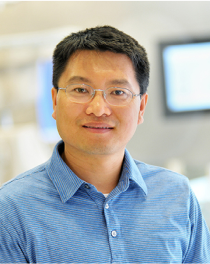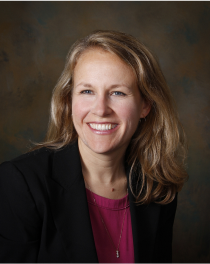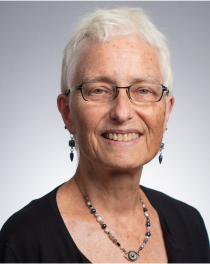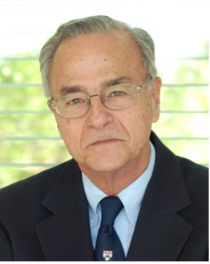KEynote speakers
We are very happy and proud to announce that the following distinguished scientists have agreed to present their outstanding work during dedicated keynote lectures.

Botond Roska, M.D., Ph.D.
Professor, Faculty of Medicine and Faculty of Science,
University of Basel
Founding Director, Institute of Molecular and Clinical Ophthalmology Basel (IOB),
Basel, Switzerland
Botond Roska, M.D. Ph.D. is founding Director and Senior Group Leader at the Institute for Molecular and Clinical Ophthalmology Basel (IOB) and Professor at the Faculty of Medicine and at the Faculty of Science at the University of Basel, Switzerland. He earned his MD in 1995 at the Semmelweis University of Medicine, Budapest, and his Ph.D. from the Department of Molecular and Cell Biology at the University of California, Berkeley in 2002. He received among others the Alcon Award (2011), the Cogan Award of ARVO (2016), the Bressler Prize in Vision Science (2018), the Louis-Jeantet Prize for Medicine (2019) and the Körber European Science Prize for his work on gene therapy (2020). At IOB he leads a research group focusing on the understanding of vision and its diseases and the development of gene therapies to restore vision.

Rui Chen, Ph.D.
Professor
HGSC, Department of Molecular and Human Genetics, T805 Baylor College of Medicine, Houston, USA
Rui Chen, PhD is currently a professor at the Department of Molecular and Human Genetics at Baylor College of Medicine. Dr. Chen serves as the director of center of single cell omics and the academic director of the ATC single cell genomics core. Taking a combinatory approach including genetics and genomics, model system, and bioinformatics, Dr. Chen’s group primarily focuses on identifying and understanding the genetics basis of the human retina diseases. In addition, Dr. Chen is leading the effort of generating the single cell atlas reference of the human eye as part of the human cell atlas project.

Jacque Duncan, MD
Steven G. Kramer, MD, PhD, Endowed Professor of Ophthalmology
Interim Chair of Ophthalmology
School of Medicine
UCSF, San Francisco, CA, USA
Jacque L. Duncan, M.D., Chair and Distinguished Professor, Department of Ophthalmology, at the University of California, San Francisco, is also the Chair of the Foundation Fighting Blindness Scientific Advisory Board, and the co-Chair of the FFB Clinical Consortium Executive Committee. She graduated with distinction and honors from Stanford University, then spent a year doing research at the University of Colorado while she applied to medical school. She completed medical school, internship and ophthalmology residency at the University of California, San Francisco. Dr. Duncan completed a medical retina fellowship at the University of Pennsylvania, working with Drs. Stuart Fine and Samuel G. Jacobson. Her fellowship training focused on patients with age-related macular degeneration and inherited retinal degenerations. She returned to join the ophthalmology faculty at UCSF in 2000.
Dr. Duncan has expertise in the diagnosis and management of patients with retinal degenerations including age-related macular degeneration, retinitis pigmentosa, cone-rod dystrophy and Stargardt disease. She has a strong interest in developing imaging and monitoring technologies to better evaluate both the progress of disease and the efficacy of emerging therapies. In collaboration with Austin Roorda, Ph.D., Professor at the University of California, Berkeley School of Optometry, and Joseph Carroll, PhD, Professor at the Medical College of Wisconsin, she has studied cone photoreceptors in the eyes of patients with many different types of inherited retinal degeneration. Dr. Duncan has received funding to support her research from the Foundation Fighting Blindness, Research to Prevent Blindness, the National Eye Institute and the US Food and Drug Administration Office of Orphan Product Development, in addition to several sponsors of clinical trials for patients with inherited retinal degenerations. She has served as chair of the FFB Scientific Advisory Board since 2015. She has worked with FFB Leadership to launch the FFB Consortium which comprises over 40 clinical centers with expertise in the care and study of patients with inherited retinal degenerations.

Christine Curcio, Ph.D.
White-McKee Endowed Professor of Opthalmology
Director, AMD Histopathology Lab
Department of Ophthalmology and Visual Sciences
Heersink School of Medicine
The University of Alabama at Birmingham, Birmingham, AL, USA
Christine A. Curcio, PhD is the White-McKee Endowed Professor in Ophthalmology at the University of Alabama at Birmingham Heersink School of Medicine. She trained at Brown University (BS), University of Wisconsin-Madison, University of Rochester (PhD 1982, Neurobiology and Anatomy), Boston University and University of Washington (post-doctoral) before joining UAB in 1990. Using laboratory and clinical approaches, she researches human retinal neuroscience, aging, and age-related macular degeneration (AMD), a prevalent cause of irreversible vision loss in older adults. Maps of human photoreceptors showing rod loss in aging and AMD stimulated development of rod-mediated dark adaptation as a functional indicator for AMD onset. Contributions in AMD anatomic and molecular pathobiology include drusen and characteristic extracellular deposits, outer retinal neurodegeneration and gliosis, transdifferentiation of retinal pigment epithelium, and microarchitecture of neovascularization and atrophy. Histologic studies support clinical retinal imaging (optical coherence tomography, fundus autofluorescence, adaptive optics-assisted scanning laser ophthalmoscopy) including the Classification of Atrophy Meeting, an international consensus group seeking OCT-based imaging endpoints for AMD clinical trials. Peer-reviewed publications (>230) garnered 28,591 citations with an H-index of 83 (Google Scholar, October 2022). She serves on editorial boards of Investigative Ophthalmology & Visual Science and Retina. She has served on the NEI Board of Scientific Counsellors, NIH study section, and currently reviews for vision funding agencies in Europe and UK. She was awarded the 2002 (inaugural) Roger H. Johnson Prize for Macular Degeneration research, 2014 Ludwig von Sallmann Prize, 2020 Research to Prevent Blindness – David F. Weeks Award, the 2022 Lawrence A. Yannuzzi Lectureship of the International Retinal Imaging Society. She is 2022 Laureate of the Future Vision Foundation https://futurevisionfound.org/2022-films.

Gustavo Aguirre, VMD, Ph.D., Ph.D.(hc)
Professor of Medical Genetics and Ophthalmology
Section of Ophthalmology
School of Veterinary Medicine
University of Pennsylvania, Philadelphia, PA, USA
Gustavo D. Aguirre, VMD, PhD is Professor of Medical Genetics and Ophthalmology at the School of Veterinary Medicine, University of Pennsylvania, and works with dog models of inherited eye and retinal degeneration. His lab focuses on model identification, disease gene discovery, establishing disease metrics and defining molecular pathways linking the gene and mutation to the disease, and developing gene-based and other therapies for translational applications.
Dr. Aguirre earned his undergraduate, veterinary, and doctoral degrees at the University of Pennsylvania, where he also completed a residency in ophthalmology before serving as a post-doctoral fellow at the Wilmer Ophthalmological Institute of the Johns Hopkins University School of Medicine. He joined the faculty at Penn in 1973 where he rose to hold joint professorial appointments in the Veterinary and Medical Schools, and returned to Penn in 2004. Between 1992-2004 he was the Caspary Professor of Ophthalmology at the James A. Baker Institute of Cornell University. His work has been supported by the NIH, FFB and other organizations. Dr. Aguirre has received numerous awards among which are an honorary Doctor of Philosophy degree from the Faculty of Mathematics and Natural Sciences, University of Göteborg, Sweden, The Foundation Fighting Blindness Trustee Award, Scientist of the Year, Heart SightMiami/Foundation Fighting Blindness Award, O.N.C.E. International Prize for R&D in Biomedicine and New Technologies for the Blind, the Alcon Research Institute Award, and he was a co-recipient of the Paul Kayser International Award in Retina Research. He is a Fellow of Association for Research in Vision and Ophthalmology, the College of Physicians of Philadelphia, the American Association for the Advancement of Science, and is a member of The National Academy of Medicine. In 2017, he received the 2017 Proctor Medal from the Association for Research in Vision and Ophthalmology for outstanding research in basic or clinical sciences as applied to ophthalmology, and in 2020 was co-recipient of the Sanford and Sue Greenberg Prize to End Blindness 2020.